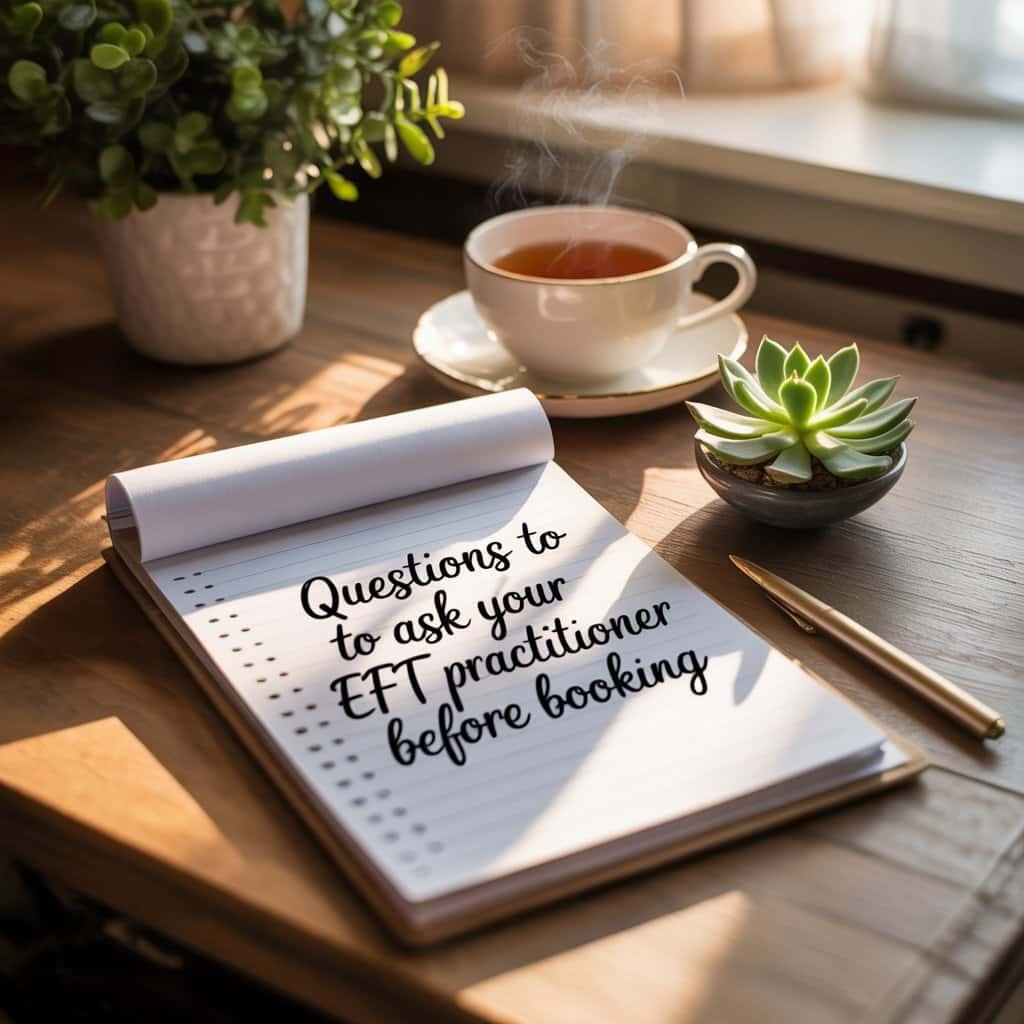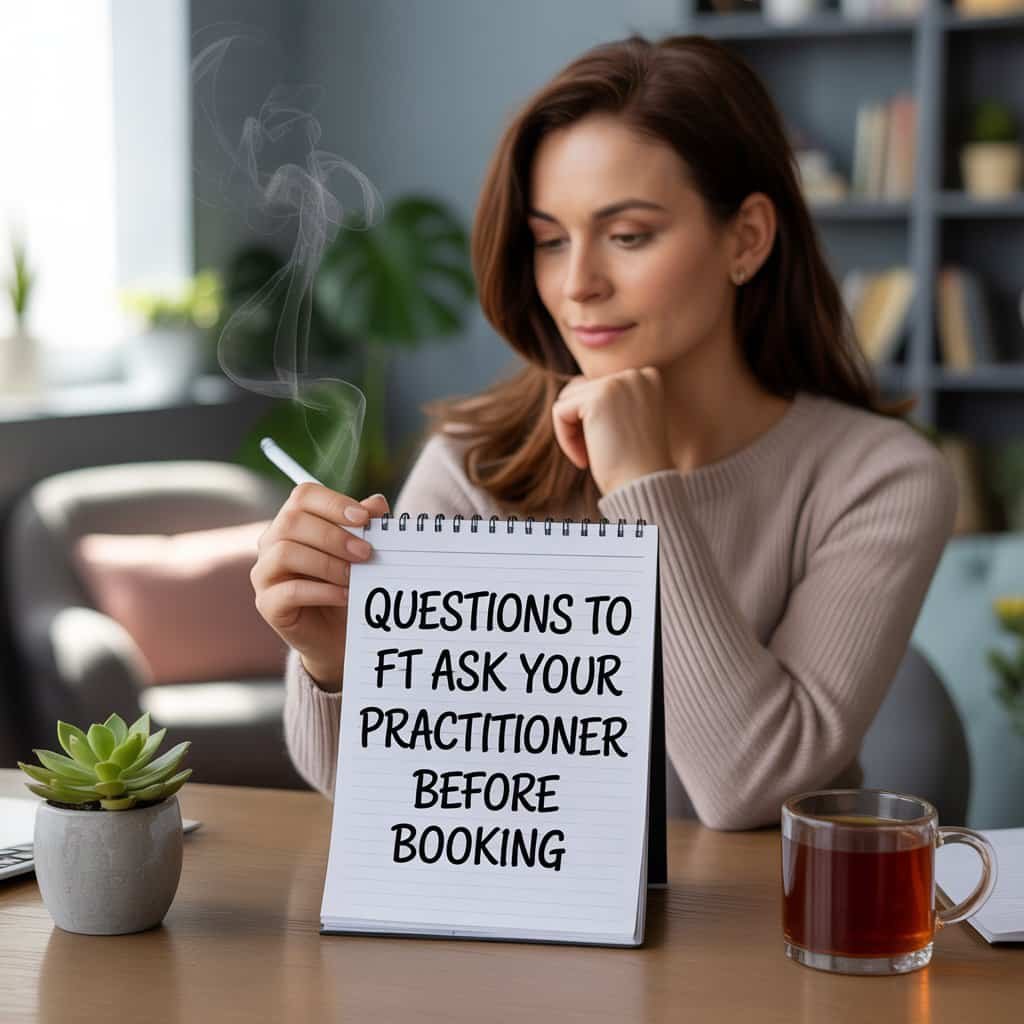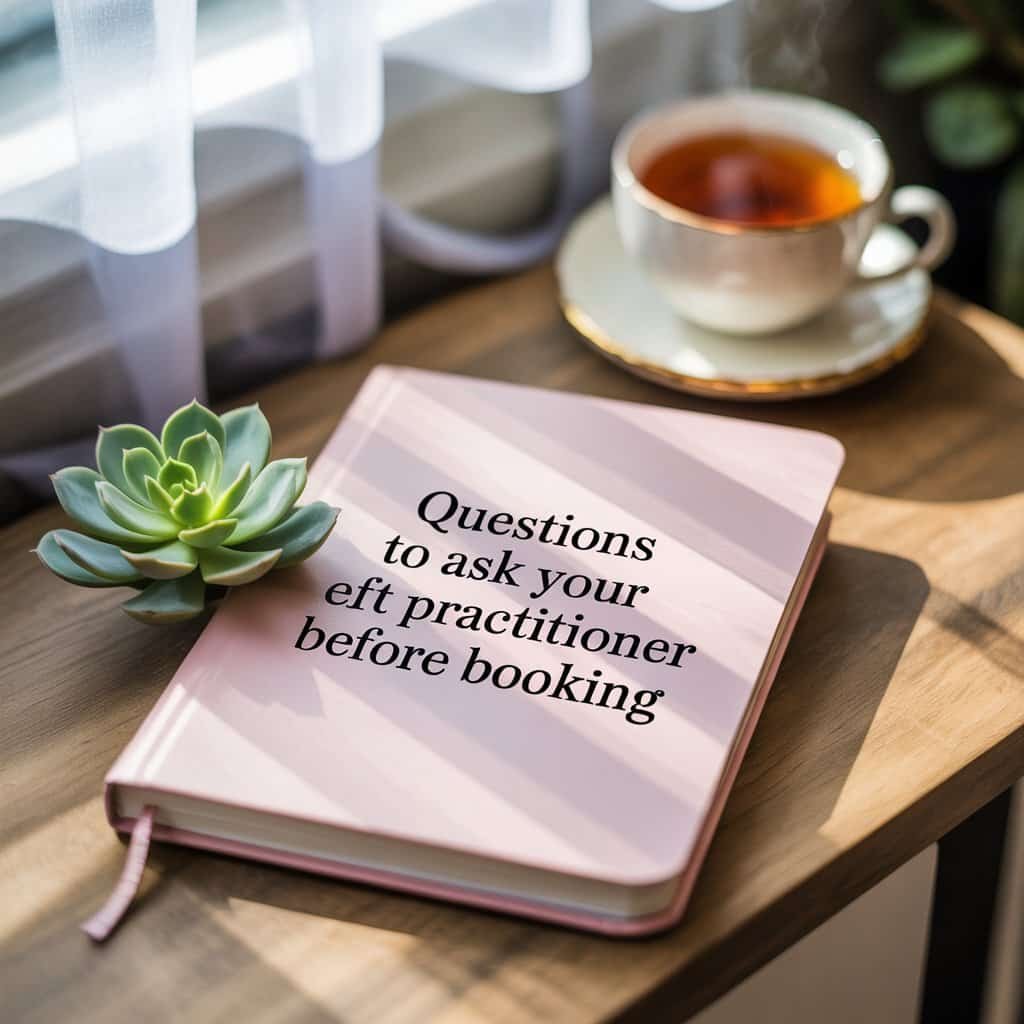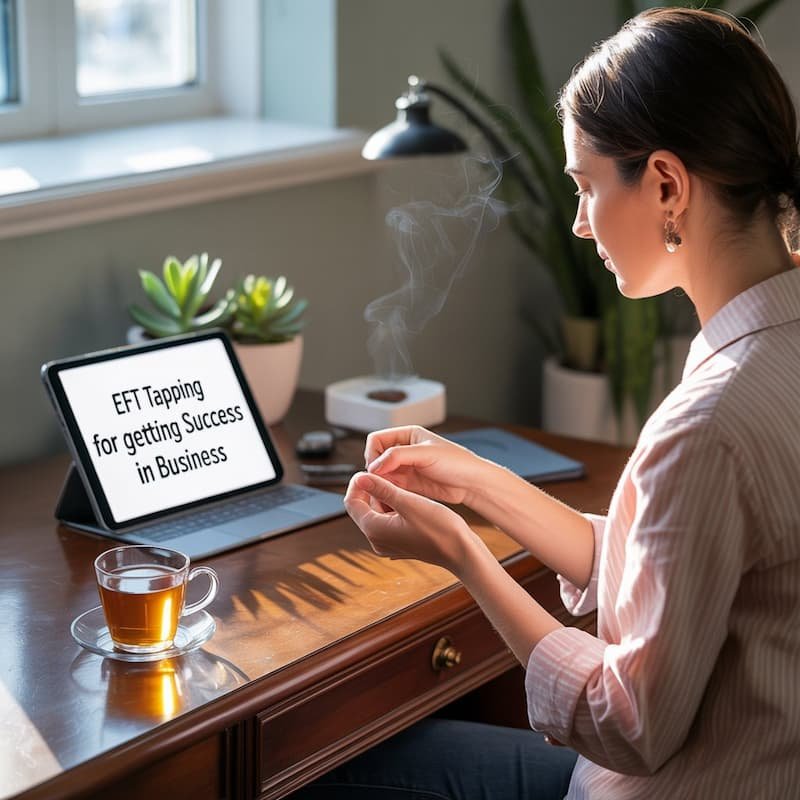Questions to Ask Your EFT Tapping Practitioner Before Booking
Booking a session with an EFT (Emotional Freedom Technique) practitioner can be transformative, but it works best when approached responsibly and respectfully.
EFT practitioners dedicate time, focus, and energy to their clients, and understanding their boundaries ensures a productive experience for everyone.
Here’s a detailed guide on how to communicate effectively before booking a session.

1. Explain Your Situation via Email, Not Over a Phone Call
If you want to share your situation or ask about services, do it via email or written message, not over a phone call. Many people use a short call like a 15-minute “chat” to ask questions that are already answered on my blog or online. This ends up wasting time for both you and the practitioner.
Writing your questions or explaining your challenges via email allows the practitioner to respond thoughtfully when they are free, without being put on the spot.
Scheduling calls for this purpose is not practical practitioners cannot give personal time to everyone who hasn’t read about EFT, its process, or how sessions work.

The only way to truly experience if EFT is right for you is to book a session. Real shifts happen in a guided session, not during a quick call or chat.
Email communication lets you inquire about services efficiently, and ensures both your time and the practitioner’s time are respected.
2. Ask About the Process and Realistic Outcomes
It’s okay to ask how EFT works in your situation(not basic general questions) and how long it might take to notice change, but don’t expect exact predictions.
EFT is deeply personal, your results depend on your own emotional patterns, consistency, and openness to the process.
Setting realistic expectations upfront helps you approach the session with patience. Remember, EFT is not an instant magic fix; it’s a practice that releases emotional blocks, and results can build over time.
Asking about process shows you’re prepared to engage, not just looking for a quick miracle.
3. Do Your Own Research
Before reaching out, take responsibility to educate yourself about EFT. Read blog posts, watch videos, and understand the basics. Basically have an idea about EFT Tapping and be open to receive healing from it.
Many people expect the practitioner to “teach them what EFT is and why it works,” which is not their job. Practitioners guide you through the emotional work, they don’t convince or sell the technique to you.
Being informed helps you enter the session ready to engage. It also shows respect for the practitioner’s time and expertise.
If you book a session without researching EFT, you are essentially asking the practitioner to hold your hand and explain something that is easily available online. That’s not efficient or respectful.
4. Respect the Practitioner’s Scope
An EFT practitioner focuses specifically on the work they are trained to do, emotional freedom techniques. Don’t expect them to give advice on unrelated practices like Reiki, astrology, or other alternative therapies. It’s not a judgment, it’s simply a matter of professional boundaries.

Trying to force a practitioner to compare therapies or give advice outside their expertise is disrespectful.
Instead, if you are curious about other methods, research them yourself and then decide how you want to integrate practices.
You an ask the practitioner about their experiences with them if they had any but asking them to help you figure out which one is better is just wasting the practitioner’s time.
5. Communicate Honestly About Your Availability
If you’re unsure about committing to a session, let the practitioner know upfront.
Ghosting, canceling last minute, or claiming you are “too busy” after booking sessions is not just inconvenient it can push practitioners to stop offering you services.
Honest communication saves time and preserves trust. If you genuinely cannot commit right now, it’s better to wait until you can fully dedicate yourself to the session.
EFT requires presence and focus, you won’t benefit from half-hearted attempts.
6. Don’t Expect Support without booking a Single Session
EFT works best in structured sessions. Email questions, casual advice requests, or expecting the practitioner to monitor your progress without you ever booking a session rarely produce meaningful results and it is disrespectful.
Most practitioners cannot provide ongoing hand-holding to strangers, it’s not sustainable, and it distracts from their primary work.

Your session time is where the real transformation happens. Any support outside that is secondary and optional, relying on it as a primary method is unlikely to bring results.
7. Set Your Own Intentions
It’s your responsibility to decide if EFT Tapping is right for you. Don’t expect a practitioner to convince you. Come with a clear idea of why you are booking, what you want to work on, and your willingness to participate fully.
EFT is collaborative and your engagement determines your results. A practitioner cannot generate shifts for you if you are passive or unsure. Take ownership of your healing and your growth.
8. Be Respectful of Time and Energy
Practitioners dedicate hours to preparing, guiding, and supporting sessions. Don’t treat them like on-demand coaches or expect free tutorials. Respect their professional boundaries and time.
Booking a session is a commitment. Being fully present, prepared, and engaged is part of honoring that time. This ensures you get the maximum benefit while maintaining a professional relationship.
9. Share, Don’t Expect Guidance on Every Step
You can share your experiences and challenges freely, but don’t pressure the practitioner to advise on every life decision.
EFT practitioners focus on releasing emotional blocks, they are not life coaches unless explicitly offering those services.
Keep the conversation focused on your emotional patterns, triggers, and blocks. This allows the practitioner to guide you effectively without stepping outside their scope.

10. Approach EFT With an Open Mind
Finally, come prepared to participate actively. EFT is not a passive therapy, you engage with the process, follow guidance, and, if instructed, practice between sessions. Expecting results without participation or commitment will limit your progress.
An open mind, willingness to tap into your emotions, and consistency are what make EFT powerful. Your readiness to show up determines the results you experience.
Key Takeaway
EFT sessions are most effective when approached with clarity, respect, and preparation.
Research the method, communicate honestly, set realistic expectations, and respect your practitioner’s expertise.
By doing so, you create the conditions for real transformation and a meaningful, productive experience.
Disclaimer: The content on this page is for educational and informational purposes only. EFT (Emotional Freedom Techniques) is not a substitute for medical, psychological, or psychiatric treatment. Please consult a licensed professional for any medical or mental health concerns.






